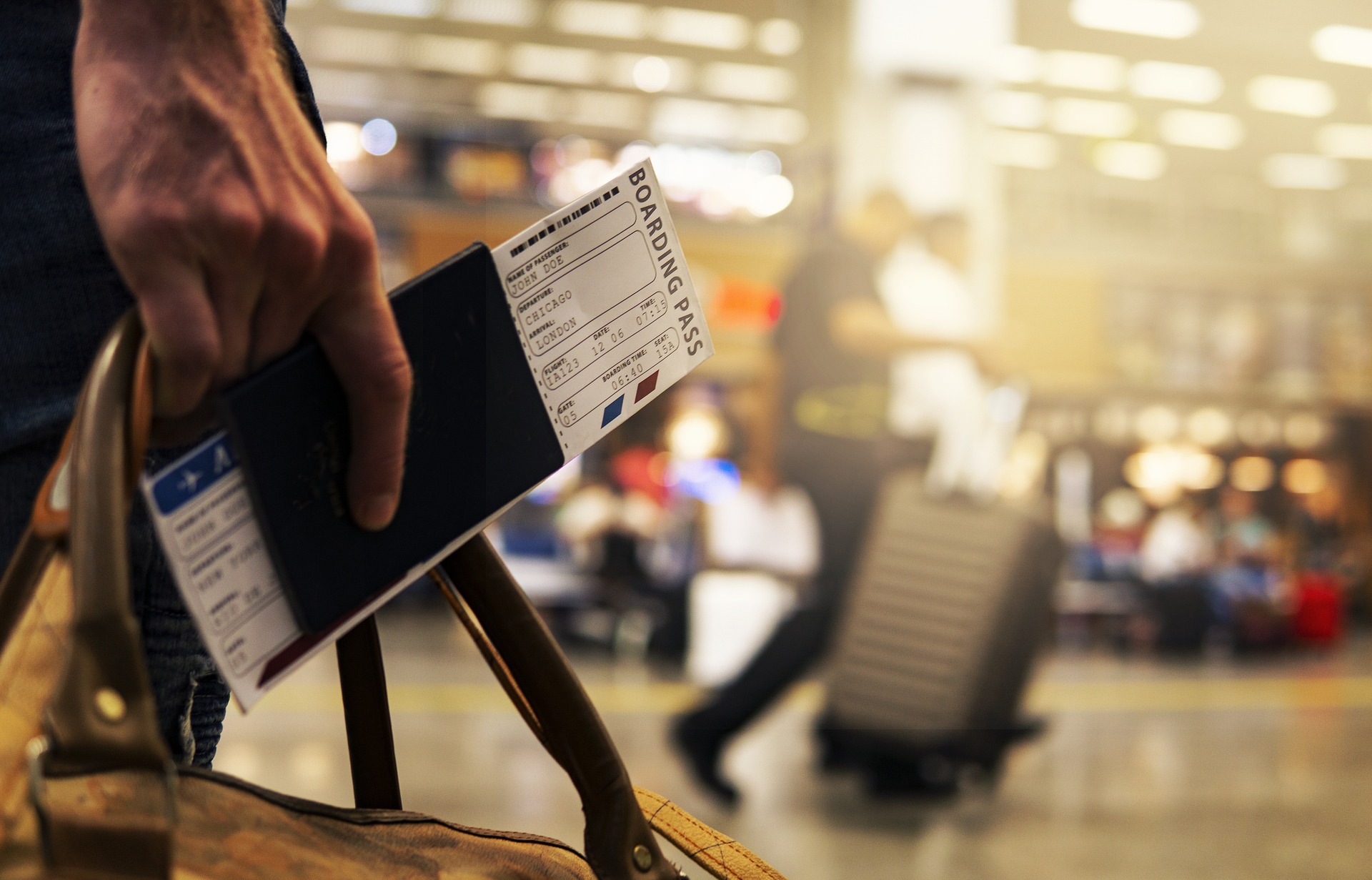Travelling for business purposes can be rewarding and hectic simultaneously, especially when managing business travel expenses and ensuring compliance with company policies. That’s where a well-crafted corporate policy comes in handy.
Embark on an exciting exploration with us as we uncover the nuances of corporate travel policies, including everything you need to know to create a practical approach that meets your company’s specific needs. From defining the scope of the policy to setting objectives, identifying key stakeholders, and outlining booking procedures, expense guidelines, reimbursement procedures, and emergency procedures, we will cover all the essential elements of a successful corporate travel policy. So, whether you’re a small business owner or a large corporation, join Qoni Travel to explore the ins and outs of corporate travel policies and how they can benefit your business.
What are Corporate Travel Policies?
Companies can minimise confusion, improve compliance, and streamline travel-related processes with a professionally designed corporate travel policy. Corporate travel policies are professionally written and managed guidelines businesses create to regulate their employees’ travel activities. They cover many topics, including travel booking procedures, expense guidelines, and reimbursement procedures. By implementing clear and concise policies, businesses can ensure employees have a seamless and stress-free travel experience while representing the company’s best interests.
What do Corporate Travel Policies Entail?
A professional and well-organised corporate travel policy is critical to any successful business travel program. It typically includes essential details such as the approved corporate travel company, booking procedure guidelines, reasonable airfare, hotels, and ground transportation costs. The policy outlines notable exceptions or rules for more expensive cities or routes, preferred vendors, and the approval process for trips that exceed typical limitations. In addition, it defines the reimbursement process, permitted and non-permitted expenses, travel debriefing procedures, travel insurance carrier, and duty of care vendor or procedures.
It’s essential to note that a comprehensive travel policy goes beyond just the moment of booking and its related expenses. It governs all travel arrangements and affects employees in various departments. By implementing a well-designed travel policy, companies can establish a standard approach to travel, ensure compliance, and protect the business’s and its employees’ interests. A comprehensive travel policy also saves time and resources while providing a clear framework for travel-related decision-making.
Why are Corporate Travel Policies Important?
Corporate travel policies play a vital role in the success of businesses that require their employees to travel. It can serve as a roadmap to ensure that employees travel safely and cost-effectively, ultimately protecting the business’s and its employees’ interests. These policies minimise confusion and maximise efficiency, allowing employees to focus on their work rather than worrying about the logistics of their travel arrangements. Additionally, they help to establish consistency in travel procedures across the organisation, regardless of the employee’s role or level.
With a well-crafted corporate travel policy in place, companies can reduce the risks associated with business travel, save money, and create a positive travel experience for their employees.
Crafting a Corporate Travel Policy
The following section will elaborate on creating a corporate travel policy, including identifying the key stakeholders, determining the policy’s scope, and setting the policy’s objectives.
Identifying Key Stakeholders
Before creating a corporate travel policy, it is critical to identify the key stakeholders. These may include the company’s executive team, finance team, human resources team, and employees who frequently travel for work.
Determine the Scope of Policy
Once the key stakeholders have been identified, it is essential to determine the policy’s scope. This may include identifying the types of travel covered by the policy, such as domestic or international travel.
Set the Policy’s Goals
The next step in creating a corporate travel policy is to set the policy’s objectives. These include reducing travel expenses, increasing travel efficiency, and ensuring employee travel safety.
Components of a Corporate Travel Policy
We will discuss the critical components of a corporate travel policy, including travel booking procedures, expense guidelines, and reimbursement procedures, in the following section:
Travel Booking Procedures
Travelling booking is the most important factor of a corporate travel policy. These procedures may include guidelines for booking flights, hotels, and car rentals, as well as guidelines for travel insurance and emergency procedures.
Expense Guidelines
Expense guidelines are another vital component of a corporate travel policy. These guidelines may include limits on travel expenses, guidelines for meal and entertainment expenses, and procedures for submitting expense reports.
Reimbursement Procedures
Reimbursement procedures are the final component of a corporate travel policy. These procedures may include guidelines for reimbursing employees for travel expenses, including the types of expenses that will be reimbursed and the procedures for submitting reimbursement requests.
Implementing a Corporate Travel Policy
Following are the steps involved in implementing a corporate travel policy, including training employees, monitoring compliance, and making necessary updates to the policy.
Training Employees
Once a corporate travel policy has been created, training employees on the policy’s guidelines and procedures is important. This may include training sessions, distributing written materials, or providing online training modules.
Monitoring Compliance
Monitoring compliance with a corporate travel policy is essential to ensuring that employees follow the guidelines and procedures outlined in the policy. This may include regular audits of travel expenses and reimbursement requests.
Updating the Policy
Corporate travel policies should be regularly updated to reflect changes in the company’s travel needs and industry standards. This may include updating the policy’s guidelines and procedures or incorporating new technology and tools to streamline the booking and reimbursement process. By regularly reviewing and updating the policy, businesses can ensure that it remains relevant and effective, maximising its benefits for the company and its employees.
Conclusion
A comprehensive corporate travel policy is crucial for any company with employees travelling for work. The policy sets clear expectations and guidelines for employees, ensuring their safety and well-being while keeping travel expenses within the company’s budget. By implementing the best practices and steps outlined in this guide, businesses can create effective corporate travel policies that cater to their unique requirements. Keeping the policy up-to-date with industry standards and business needs is also critical for maximum effectiveness. A well-crafted corporate travel policy can help streamline travel processes, save resources, and benefit the company and its employees. Stay tuned with Qoni Travel for more info like this.
Frequently Asked Questions
What is a corporate travel policy, and why do companies need one?
A corporate travel policy is basic guideline companies create to regulate their employees’ travel. It is crucial because it helps ensure employees travel safely and within the company’s budget.
What should be included in a corporate travel policy?
A comprehensive corporate travel policy should include all related information on the approved corporate travel company, booking procedures, allowable costs for hotels, airfare, and ground transportation, preferred vendors, the approval process for trips that exceed typical limitations, reimbursement process, permitted and non-permitted expenses, travel debriefing procedures, travel insurance carrier, and duty of care vendor or procedures.
How often should a company review and update its corporate travel policy?
Companies should review and update their travel policy regularly, at least annually, or when significant changes occur, such as new regulations or industry standards.
How can a corporate travel policy benefit both company and its employees?
A well-crafted corporate travel policy can help streamline travel processes, save resources, and ensure compliance. It can also protect the business’s and its employees’ interests, such as providing duty of care measures for employee safety and setting clear guidelines for reimbursements.






